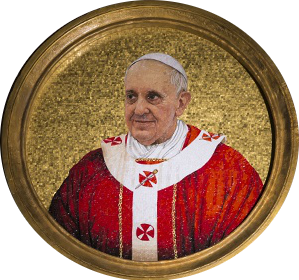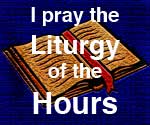Brothers and Sisters: Peace be with you.
Frequently, Internet atheistic aces challenge me to provide evidence and/or proof for the existence of God. Almost all the time the proof they demand is, on its face, absurd because it is empirical in way or the other and God, if they only knew what the word "God" is, lies beyond any empirical proof. No matter, they keep insisting and the silence of the impossible experiment is proof enough for them.
This post is not address to those narrow, sterile minds because they've closed themselves within and become impermeable to any argument. Their minds already closed to reason present an insurmountable obstacle to sober argument. The only thing left to do for them is to pray.
Instead, this proof, proposed by the mathematician
Kurt Gödel (1906–1978), is a mathematical expression of the ontological proof proposed by
St. Anselm of Canterbury (1033–1109) and should appeal to the open-minded and logic-bound. Now, St. Anselm's argument goes like this:
God, by definition, is that for which no greater can be conceived. God
exists in the understanding. If God exists in the understanding, we
could imagine Him to be greater by existing in reality. Therefore, God must exist.
It is an argument that really bothers people and has been persistently attacked ever since, yet it keeps surfacing.
The Proof
Gödel utilized
modal logic and distinguished between
necessary truths and
contingent truths.It goes like this:
- Definition 1: x is God-like if and only if x has as essential properties those and only those properties which are positive
- Definition 2: A is an essence of x if and only if for every property B, x has B necessarily if and only if A entails B
- Definition 3: x necessarily exists if and only if every essence of x is necessarily exemplified
- Axiom 1: Any property entailed by—i.e., strictly implied by—a positive property is positive
- Axiom 2: A property is positive if and only if its negation is not positive
- Axiom 3: The property of being God-like is positive
- Axiom 4: If a property is positive, then it is necessarily positive
- Axiom 5: Necessary existence is a positive property
Axiom 4 assumes that it is possible to single out
positive properties from among all properties. Gödel comments that "Positive means positive in the
moral aesthetic sense (independently of the accidental structure of the world)... It may also mean pure
attribution as opposed to
privation
(or containing privation)." (Gödel 1995). Axioms 1, 2 and 3 can be
summarized by saying that positive properties form a principal
ultrafilter.
From these axioms and definitions and a few other axioms from modal logic, the following theorems can be proved:
- Theorem 1: If a property is positive, then it is consistent, i.e., possibly exemplified.
- Theorem 2: The property of being God-like is consistent.
- Theorem 3: If something is God-like, then the property of being God-like is an essence of that thing.
- Theorem 4: Necessarily, the property of being God-like is exemplified.
Symbolically, it looks like this:
Now, in English
This is my blurb understanding of this proof in English:
If you understood what is meant by "God" you will instantly understand that he cannot not exist; God; objective, concrete existence is a mandatory predicate of the being "God".
Limitations
We need to be careful and hones regarding what this proof does and does not do
. It would be intellectually dishonest to ascribe to Gödel's proof claims it doesn't make.
1. It does not prove the Triune nature of God as we Christians see Him;
2. It does not prove a Theistic (i.e. Christian, Jewish, or Islamic conceptions of God) conception of God; "God" can still be conceived in Deistic terms;
3. It makes no moral claims; it attaches no specific ethic or moral demands from God toward rational creatures.
4. It doesn't do away with panentheism ("'God' is in everything, but not everything is 'God'" type of belief)
5. It doesn't establish that the one God created the universe out of nothing.
What it does
What does Gödel's proof actually accomplishes?
1. It does away with theoretical atheism - the one embraced and screamed by today's "New Atheists". Atheist is proved to be an abstraction and not an accurate description of objective reality; the affirmation "There is No God" becomes meaningless in the real world, but perhaps meaningful in fictitious or imaginary worlds, confined there along with unicorns and the Flying Spaghetti Monster..
2. It rules out polytheism - belief in many gods.
3. It rules out pantheism.
In the end...
Look, for reasons I explained above, Gödel's elaboration of St. Anselm's ontological proof will mollify Internet atheists. They will keep living as if God didn't exist, as dwarf versions of Nietzsche's supermen. They will live thus because that's what how they wish to live and admitting the existence of God would be inconvenient. They will go on demanding their
empirical evidence without even bothering to understand why, when it comes to God, such evidence can't be had.
Of course, if they would bring themselves to understand what "God" is in the hierarchy of beings, they would understand why, and they would stumble open St. Anselm's and Gödel's proof and start the circle of affirmation and denial again, without bothering to
think.
Now for us Christians, Gödel and St. Anselm created a threshold or vestibule to a temple inside which, in its sanctuary, we may find the one God and, in its Holy of Holies, we find God revealed in Jesus Christ.
The Holy of Holies is open for all of us. We must decide if we walk from the lobby into the sanctuary and then, into the Holy of Holies to meet Him in Person. He calls us to Himself, in fact. Will we heed His voice?
Future considerations
I think it might be possible to use this proof as a starting point for expressing St. Thomas Aquinas
Five Arguments for the Existence of God, utilizing
modal logic . However, that's beyond my capabilities for the moment. Perhaps some of you could do it?
Source of Gödel's proof: Wikipedia. Read also Gödel's bio here.










































